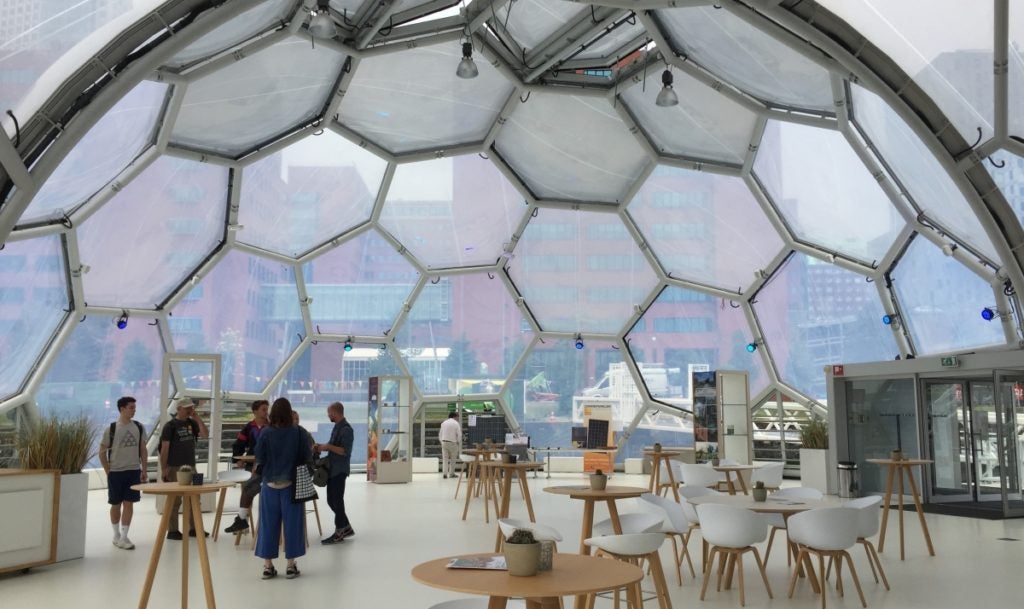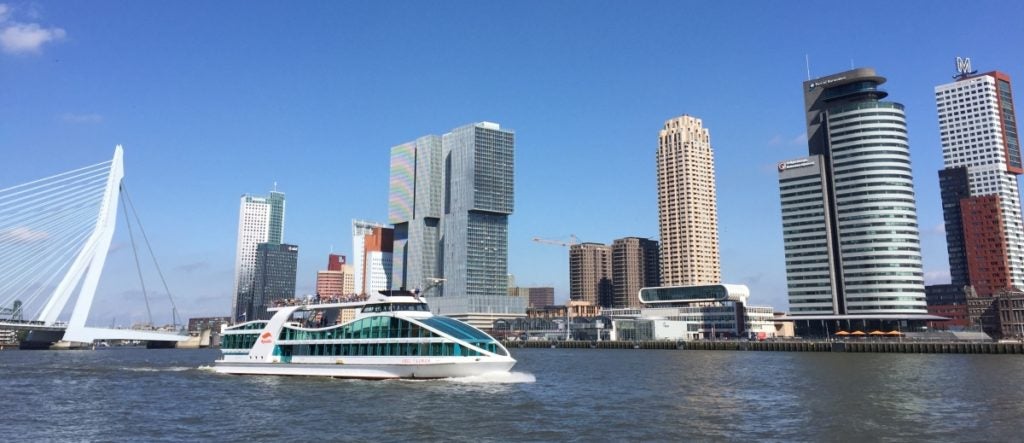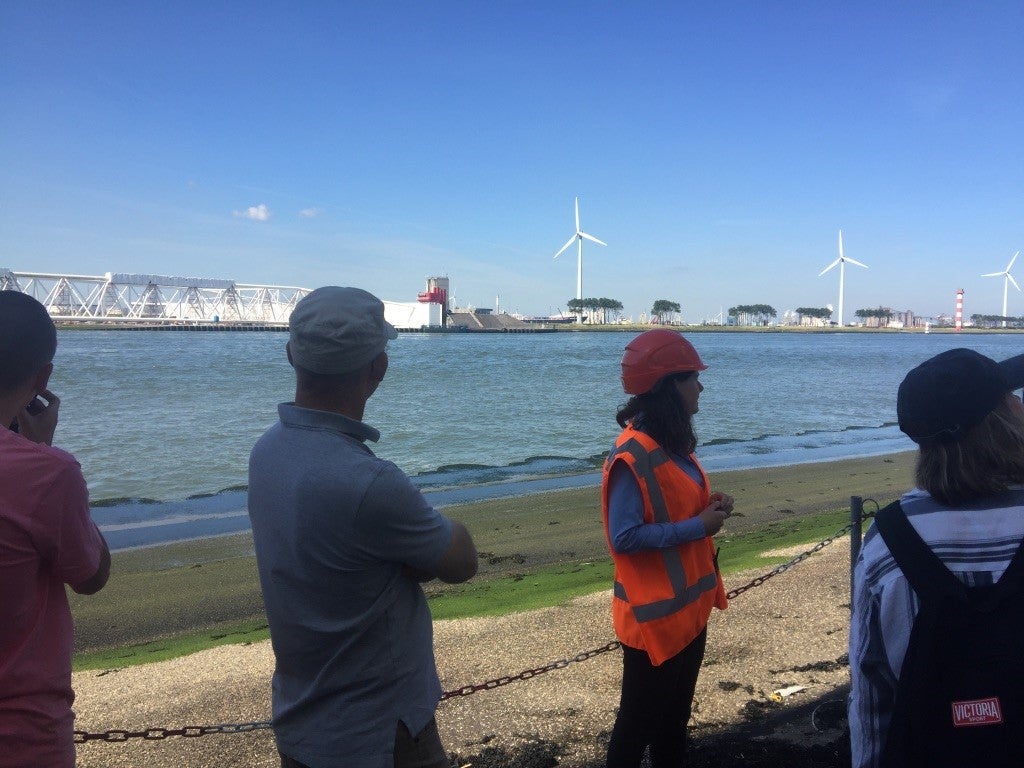
Taking Energy Education Overseas

Meeting with experts on Dutch water management, visiting robots used as protection against storm surge, and touring an architecture firm that is in the process of creating the first floating cow farm in the port of Rotterdam. These are just a handful of things that students of Penn’s Berlin and Rotterdam summer study program got to experience while on their program.
Every year, students attend the Berlin and Rotterdam program to learn about the cultures of sustainability and discuss a variety of energy and energy policy related concepts. The Kleinman Center is proud to support this program through student grant funding.
The trip began in Amsterdam, where students met with Marjan Minnesma, an influential member of the Urgenda team. Urgenda is as a small NGO that in 2013, successfully sued the Dutch government on behalf of the Dutch people for not implementing policies that would rapidly reduce greenhouse gas emissions. This unique case has garnered worldwide attention.
Kleinman supported student, Jacob Kind, SAS, reflected on Marjan Minnesma’s presentation, “her organization inspired me because I hope to one-day practice international law. Urgenda provided us with a clear, tangible example of how we could replicate like-minded, green strategies in the United States.” At an event in 2015, the Kleinman Center welcomed Roger Cox, the lead lawyer in the landmark Dutch case, who shared insights from the strategy with the Penn community.

The trip then moved to Berlin where students met with Karin Franzen of GIZ, who talked on the German Energiewende and its relation to developments in China. Energiewende refers to the country’s “energy transition” to a renewable energy future. As a part of this transition, Germany is working on a coal phase-out. Despite the political push and technological innovation, coal continues to make up nearly half of the country’s energy production. While Germany uses some of the cleanest and most modern technologies, they also employ some of the dirtiest.
Students met with Charlotte Loreck of the German Öko Institut. She explained that though there are a handful of technical factors that have helped keep coal relevant—such as the fact that it can scale production up or down depending on how much renewable energy is being generated. Germany sits on a tremendous reserve of coal—primarily lignite, or “dirty coal.” The coal industry, which is primarily concentrated in pockets in the northern part of the country, has employed some families and communities for generations, and so naturally, these communities see the impending move towards renewables as an attack on their way of life. Similar to the United States and Appalachia, the persistence of coal as such a prominent power source is largely political.

Finally, the student group visited The University of Sustainable Development where they gave a presentation to a group organized with the help of the Eberswalde Mayor along with the Brandenburg Office of The Heinrich Böll Foundation. The student’s presentation focused on the Trump administration’s policies in their relation to the environment as well the ways Americans were resisting these backtracks.
Meeting with energy and sustainability leaders throughout Berlin and Rotterdam help to inspire students to work hard on the energy challenges facing us today. Jacob Kind reflected that meeting with policy leaders, “made me realize that the future is now, and that we can institute similar energy projects back at home.”
Learn more about the Penn in Berlin & Rotterdam program and how Kleinman Center student grants can help you get there.
2017 Kleinman Center Berlin and Rotterdam Students:
- Nathan Fisher, Mechanical Engineering & Applied Mechanics, SEAS
- Jacob Kind, Undecided, SAS
- Damien Koussis, Earth Science, SAS
